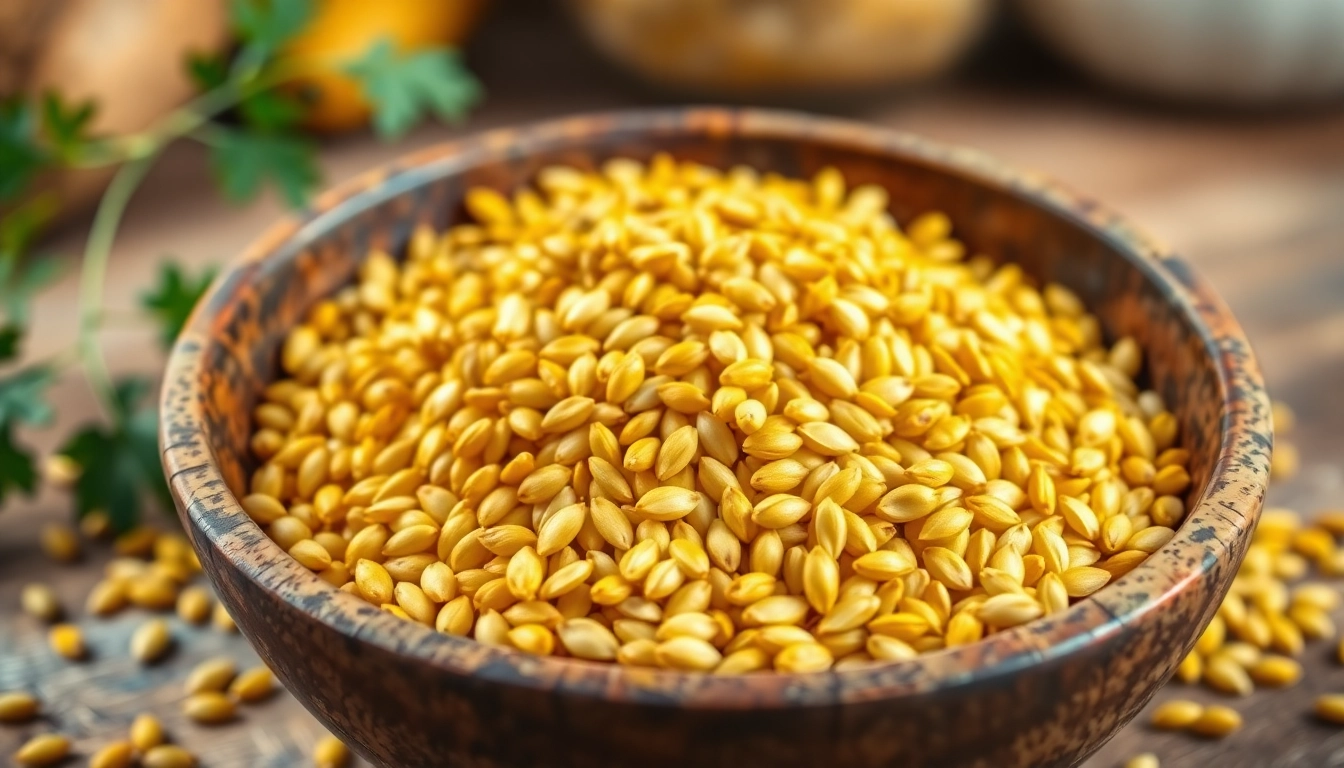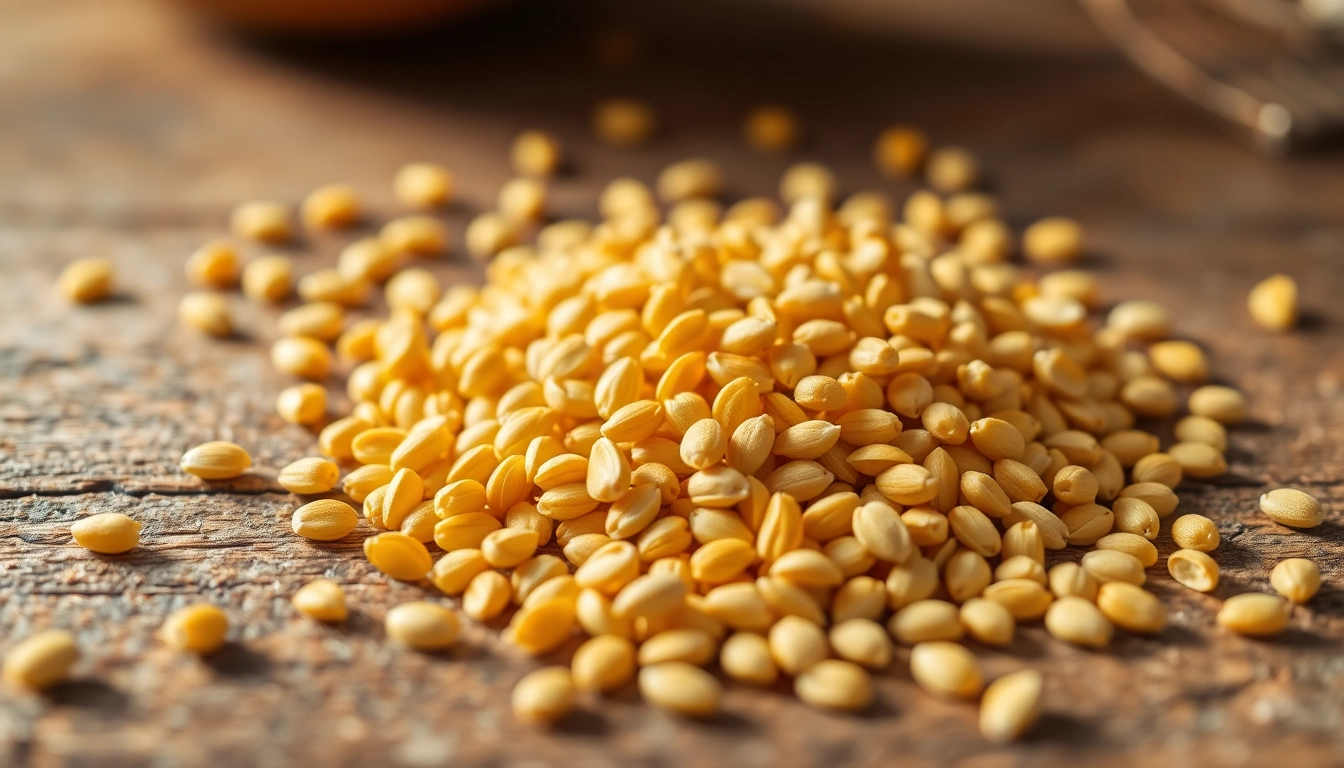Understanding Fenugreek Seeds: Origins and Nutritional Value
Fenugreek seeds are among the oldest cultivated herbs, dating back over 4,000 years. Originating from regions of the Middle East, North Africa, and South Asia, this spice has played a vital role in traditional cuisine and medicinal practices. Its historical significance is deeply rooted in Ayurvedic and Unani medicine, where it has been used to treat various ailments ranging from digestive issues to hormonal imbalances. In contemporary cuisine, fenugreek seeds are prized for their distinctive aroma and flavor, making them a staple in Indian, Mediterranean, and North African dishes.
As a global demand for authentic and high-quality spices surges, fenugreek seeds have found a firm footing in international markets. Their versatility not only enriches culinary creations but also offers substantial health benefits, prompting health-conscious consumers to seek out premium products. For businesses and consumers alike, sourcing quality fenugreek seeds is crucial, which is where reputable manufacturers like Fenugreek Seeds exporters come into play, ensuring product authenticity, purity, and nutritional integrity.
Key Nutrients and Health Advantages of Fenugreek Seeds
Fenugreek seeds are nutritional powerhouses, rich in fiber, protein, vitamins, and minerals such as iron, magnesium, and manganese. They contain phytonutrients like saponins and flavonoids, which contribute to their medicinal properties. The seeds are particularly renowned for their ability to regulate blood sugar levels, making them valuable for diabetics. Additionally, they support digestion, enhance lactation in nursing mothers, and promote hormonal balance especially in women experiencing menopausal symptoms.
Scientific studies validate many of these claims, highlighting fenugreek’s capacity to reduce insulin resistance and improve glucoregulation. Its high soluble fiber content aids in controlling cholesterol and stabilizing blood sugar, which can decrease the risk of cardiovascular diseases. Regular consumption of fenugreek seeds also boosts immune health and possesses anti-inflammatory properties, positioning it as a natural supplement for overall wellness.
How to Select and Buy High-Quality Fenugreek Seeds
Identifying Fresh and Premium Fenugreek Seed Varieties
Choosing the right fenugreek seeds starts with assessing their appearance, aroma, and texture. High-quality seeds are typically golden-brown, uniform in size, and have a strong, characteristic aroma. Fresh seeds are free from mold, moisture, and pests, and do not have a musty or sour smell. Reputable suppliers such as Spice Nest ensure their fenugreek seeds undergo rigorous quality checks, including organoleptic testing and lab analyses, to guarantee superior quality.
Factors Influencing Quality and Purity Standards
Standards for premium fenugreek seeds encompass purity, moisture content, and absence of contaminants. Cleanliness and grading are critical parameters. A high-grade fenugreek seed should contain minimal extraneous matter, dust, or broken seeds. Certifications like ISO, ORGANIC, and FAIR TRADE further attest to quality assurance. Proper processing, including cleaning, sorting, and packaging in controlled conditions, maintains seed integrity and prolongs shelf life.
Tips for Sourcing from Reputable Suppliers and Exporters
When sourcing fenugreek seeds, prioritize suppliers with a proven track record and transparent supply chains. Verify certifications and request quality assurance documents. Visiting the manufacturing facilities or attending trade shows like Biofach can provide insights into their production standards. Establishing long-term relationships with trusted exporters like Spice Nest ensures consistent quality, competitive prices, and timely deliveries, which are vital for business success.
Best Practices for Using Fenugreek Seeds in Cooking
Common Recipes and Culinary Applications of Fenugreek Seeds
Fenugreek seeds are versatile, used in a variety of dishes across different cuisines. In Indian cuisine, they’re often roasted and ground into powders for spice blends like garam masala, added to dals, curries, and pickles. They are also used in Mediterranean dishes such as stews and sauces, lending a subtle bitterness and fragrant aroma. In North African cuisine, fenugreek seeds enhance tangy spice mixtures and bread flavors. Their unique profile makes them indispensable for authentic taste and aroma enhancement.
Preparation Techniques to Maximize Flavor and Health Benefits
For maximum flavor release, fenugreek seeds are best dry toasted to bring out their nutty aroma before grinding or adding to dishes. Soaking seeds in warm water for 30 minutes softens them and releases soluble nutrients, which can enhance digestion and nutrient absorption. Alternatively, crushing the seeds with a mortar and pestle releases essential oils, intensifying their flavor and health effects. Incorporating these preparation steps into cooking routines ensures you harness both flavor and nutritional benefits optimally.
Storage Tips to Preserve Freshness and Aroma
Proper storage preserves fenugreek seeds’ aroma and potency. Keep seeds in airtight, opaque containers away from direct sunlight, moisture, and heat. Use dry, clean utensils to prevent contamination and pest infestation. For long-term storage, refrigeration in vacuum-sealed packs can further extend freshness without compromising flavor. Periodic shelf checks and adherence to storage guidelines ensure that fenugreek seeds maintain their quality over time, making them a reliable staple in your kitchen pantry.
Health Benefits Backed by Scientific Research
Impact of Fenugreek Seeds on Digestion and Blood Sugar Levels
Numerous clinical studies document fenugreek’s role in improving digestive health due to its high soluble fiber content, which alleviates constipation and promotes gut motility. Its soluble fibers slow carbohydrate absorption, thereby stabilizing blood glucose levels—a vital benefit for diabetics. Regular intake has shown to reduce fasting blood sugar and postprandial glucose spikes, supporting long-term glycemic control.
Role in Weight Management and Hormonal Balance
Fenugreek seeds aid in weight management by inducing feelings of fullness and reducing calorie intake. Their fiber-rich composition delays gastric emptying, fostering satiety. Additionally, the seeds contain compounds that support hormonal balance, particularly influencing insulin and estrogen pathways, which can alleviate menopausal symptoms and improve reproductive health.
Incorporating Fenugreek Seeds into Daily Health Routines
Integrate fenugreek seeds into your diet by soaking a teaspoon overnight and consuming it with water each morning. You can also add roasted seeds to salads, curries, and bread. Supplements are available for those seeking concentrated doses, but it’s advisable to consult healthcare professionals for personalized guidance. Consistent inclusion of fenugreek seeds in daily routines may significantly improve metabolic health and overall wellness.
Industry Trends and Opportunities in Fenugreek Seed Export
Market Growth and Export Potential for Manufacturers
The global spice market is experiencing a noteworthy expansion, driven by increasing consumer demand for natural and organic products. Fenugreek seeds are particularly valued for their health benefits and culinary versatility, creating substantial export opportunities for certified manufacturers. Countries such as India, Australia, and Morocco are leading producers, and exporting firms that maintain rigorous quality standards can command premium prices. Capitalizing on organic certifications and sustainable practices further enhances market appeal.
Challenges and Quality Assurance in the Fenugreek Trade
Key challenges include maintaining purity and preventing adulteration, which can tarnish a brand’s reputation and lead to legal issues. Fluctuations in crop yields due to climatic factors can affect supply consistency. To mitigate these risks, exporters must implement stringent quality controls, adopt Good Agricultural Practices (GAP), and pursue certifications like ISO and Organic to ensure product integrity and market credibility.
Future Outlook and Innovative Applications in Food and Health Sectors
The future of fenugreek seeds lies in innovative food formulations and functional health products. Extraction of bioactive compounds for nutraceuticals, incorporation into herbal teas, and development of fortified processed foods are emerging trends. Additionally, expanding organic and sustainable farming techniques will cater to eco-conscious markets. As scientific research continues to validate health benefits, the demand for high-quality fenugreek seeds is projected to grow, offering lucrative opportunities for proactive exporters and manufacturers committed to quality and innovation.

